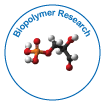The Effectiveness of VEGF Signalling Pathway Inhibitors on the Kidney and Their Immunoregulation Mechanism
Received Date: Nov 03, 2023 / Published Date: Nov 29, 2023
Abstract
Pathophysiologic processes that are closely related are angiogenesis and immunosuppression. VEGF signaling pathway inhibitors, which are frequently prescribed for proliferative retinal lesions and malignant tumors, can induce hypertension and renal damage in certain patients. These patients may present with proteinuria, nephrotic syndrome, renal failure, and thrombotic microangiopathy. VEGF-A and VEGF-C are both inhibited by VEGF signaling pathway inhibitors. Nonetheless, glomerular endothelial cells’ and podocytes’ physiological function depends on the VEGF-A and VEGF-C that podocytes produce. For kidney disease linked to inhibitors of the VEGF signaling pathway, there is currently no proven treatment, and some patients continue to experience progressive renal failure even after stopping their medication. According to recent research, VEGF-A and VEGF-C blocking can increase cytotoxicity of CD4 + and CD8 + T cells, strengthen dendritic cells’ ability to present antigens, and activate CD4 + and CD8+ T cells.
Citation: Andrews B (2023) The Effectiveness of VEGF Signalling PathwayInhibitors on the Kidney and Their Immunoregulation Mechanism. BiopolymersRes 7: 185.
Copyright: © 2023 Andrews B. This is an open-access article distributed underthe terms of the Creative Commons Attribution License, which permits unrestricteduse, distribution, and reproduction in any medium, provided the original author andsource are credited.
Share This Article
Recommended Journals
Open Access Journals
Article Usage
- Total views: 635
- [From(publication date): 0-2023 - Apr 03, 2025]
- Breakdown by view type
- HTML page views: 430
- PDF downloads: 205
